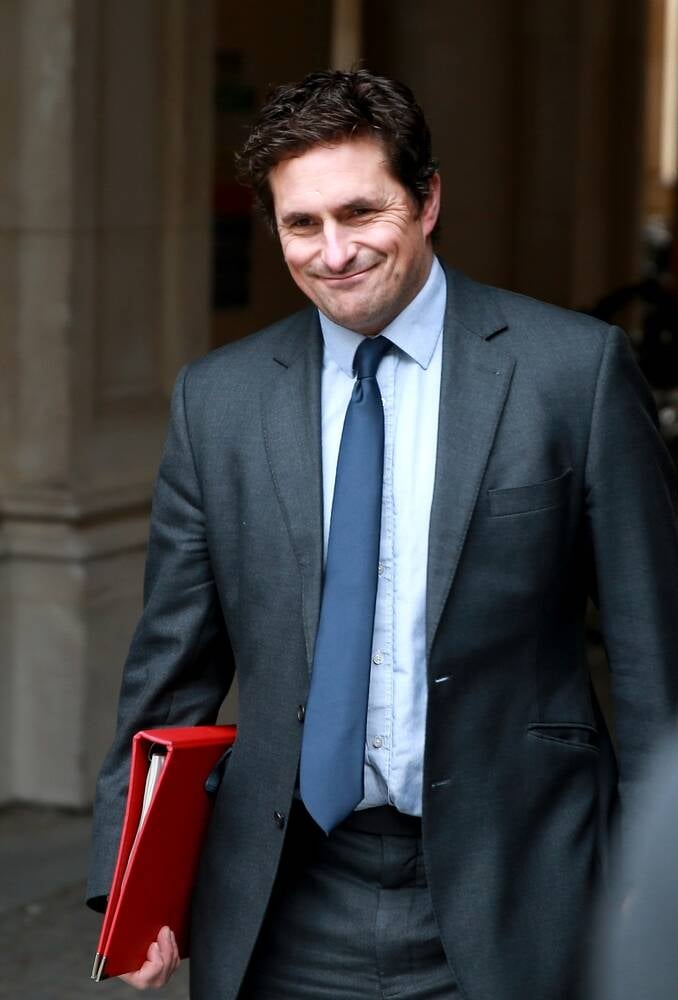In setting the date for the UK’s next general election, prime minister Rishi Sunak this week essentially announced the start of open season for political reporters all hunting for the top scoop of the day by any means necessary. He may need, however, to brief his ministers on basic opsec if he’s going to stop any more internal memos from reaching the front pages.
On May 22, less than 24 hours before PM Sunak said July 4 would be the day UK citizens decide on their next leader, The Times published a gem sourced from photos taken of veterans’ affairs minister Johnny Mercer’s laptop on a public train.
It’s an example of shoulder surfing – a type of social engineering technique that involves peering at other people’s devices to discover secrets like passwords, PINs, sensitive emails, and the like.
We’re not sure what’s worse here, the cyber hygiene gaffe and abject failure to protect internal party comms from the prying eyes of the British public traveling from Exeter to London, or the fact that along with his laptop Mercer was papped with his bare feet cheesing out the first-class carriage. For shame, Johnny.
For those whose interests extend beyond the mere cybersecurity aspects of this story, the photos revealed Mercer’s memo criticizing Downing Street for giving the PM too much airtime and should instead be offering more public speaking gigs to more popular members of the Conservative party, such as Kemi Badenoch and Penny Mordaunt.
…
Perhaps more illuminating on the current government’s attitude towards voting, Mercer also appeared to suggest that the Conservatives were suppressing votes from specific demographics.
His memo states that he was upset that his attempts to let military veterans, who had previously been turned away from polling stations, use their ID cards to prove their identity when voting had been denied. Downing Street special advisers apparently blocked these proposals because it could also “open the floodgates” and allow students to also use their ID cards too.
…
We got in touch with the Cabinet Office to ask for comment and find out if ministers are briefed on the dangers of shoulder surfing, but it hadn’t responded by the time of publication.
While we wait for a response from the UK gov, we can instead turn to Mercer’s X account, which is where he responded to The Times’ scoop by calling the public transport snapper a “little weirdo.”
“So some little weirdo has gone round snapping my laptop reading private messages from a private email account,” Mercer Xeeted. "My shoes and socks were off because I’d just cycled across Dartmoor in the rain.
“Shoot me now. Or grow up.”



retirement is 65 to 90 or more. The number of people living past 90 has increased hugly over the last few generations. 100 is still rare but far from unheard of.
So yes a sizable number of retired voters will no longer be safe to drive.
As for you self declare. Yeah that is nopt a good thing. And way less then 100%. For some conditions your doctor is required to notify the DVLA. As are police officers if you are4 stopped and they feel your mental or physical state means you are unsafe to drive.
At that point you are required to get a doctor to confirm your medical condition is not a threat.
And dude sorry to tell you this. When your parents or grandparents get to the age where they are unsafe to drive.
It is your moral and sociatal duty to convince them to declare.
This is why my mother is no longer driving.
(Males in my family have a genetic condition. That means we lose vision in our 40s or before. So my dad and myself were both stopped by the doctor informing us then reporting to the DVLA the condition had gotten that bad. Dad many years before me)
And my parents discouraged my grandad on my mothers side at 75 as parkinsons started to show.
honestly once you reach retirement age their are many many things that can happen. Many you will survive but will leave you unable to respond safely in an accident. And the vast majority of families do encourage them to declare.
Police unfortunatly are far to often only involved in an accident or near accident.